

The Joy of Reading
Helping to improve literacy in the Pacific




Helping to improve literacy in the Pacific

Australian Marist Solidarity (AMS) believes in a world where young people have hope and the opportunity to access education. Our mission is to partner with communities in the Asia Pacific region to facilitate access to education for young people in need.
We believe local people are the experts on the challenges facing their communities and the solutions that will address these challenges. By working directly with community partners, we help them access the resources required to deliver quality education and serve young people where and how they need it most. To help us focus our efforts to ensure their young people reach their brightest potential, AMS partners with local communities in three key areas of work:
Access to education
We facilitate access to quality education for vulnerable children and young people through projects in primary, secondary, vocational and tertiary education programs across Asia and the Pacific.
Facilities for the future
We invest in infrastructure to ensure safe places for learning.
Resilience and readiness
We support programs to build resilience, provide care, and empower marginalised communities to strengthen access to education and workplace skills and knowledge.

Dear friends of AMS,
Welcome to the Winter edition of Solidarity Matters.
I’m pleased to be able to share some highlights of our 2023 Annual Report with you. Last year AMS:
• Supported 54 projects
• Worked with 40 project partners working in 18 countries
• Supported the opening of 9 new projects
• Supported 8,823 project participants
• Sent $2,350,110 to programs
In this edition, I am excited to share the stories of Olivette, Karldo and Mary - three inspiring young students at St Joseph’s Marist College in Tenaru, Solomon Islands. They are intelligent young people with a passion for reading and they share with you why they are hoping that the library at their school will be rebuilt.
I hope that your community was able to mark in some way the Feast Day of our Founder, St. Marcellin Champagnat. Here in Brisbane, staff at the Marist Centre Brisbane joined together for breakfast and prayer in celebration of Marcellin’s legacy.
St Joseph’s College in Mabiri, Bougainville has recently completed the latest phase of its building project and in the Solomon Islands, building is underway at St Martin’s Rural Training Centre. You can read
about these projects and more in this edition.
Programs Officer Taylor Lemmon is currently visiting our partners in Thailand and Vietnam, including the Marist Asia Foundation (Thailand), the Training and Rehabilitation Centre for the Blind (Vietnam) and the Anti Human Trafficking Project (Myanmar). She shares photos and insights from meeting with these partners on page 11.
AMS is pleased to welcome Cara, our new Business Manager. She has hit the ground running and you can learn more about her in her staff profile.
You would have received the new that the Board of Directors have accepted Bec Bromhead’s resignation after five years of service. You can read more about about Bec’s amazing contribution to AMS over the last five years the Governance Update on page 14.
We hope you enjoy reading the latest updates of how your support of AMS is impacting young lives in the Asia Pacific.
Yours in solidarity,
 Anna Mosbauer Acting CEO
INTRODUCING CARA HUGHES
Anna Mosbauer Acting CEO
INTRODUCING CARA HUGHES
Cara’s role as the Business Manager is to manage the business functions of the AMS office, including finance, risk management, compliance requirements, strategic development and policy and procedures.
Cara has a background in financial management, having worked in the community sector and not-for-profit organisations for more than twenty years.
On any given weekend, you’ll find Cara on the sidelines of her local netball association, passionately cheering on her local netball club teams and players.
If not at netball, Cara will be found at home reading or enjoying quality time with her husband, three kids and their two fur babies.
Read previous editions of Solidarity Matters on our website.
GOT A STORY?
We’d love to share it with our supporters!
Please send it to:
ams@marists.org.au
Melissa is a student at St Joseph’s Marist College, Tenaru in the Solomon Islands. AMS is raising funds to transform the school library, which is currently closed to students and staff due to the condition of the building.



Abroad smile crosses Olivette’s face as she shares, “My favourite book is The Fantastic Mr Fox by Roald Dahl.” Olivette is a student at St Joseph’s Marist College in Tenaru, the Solomon Islands.
She answers each interview question articulately and eloquently. In response to a question about the importance of a new library for her school, Olivette replies, “A new library would help make a difference by helping students to be exposed to new knowledge and improve their literature in terms of speaking in English.” It’s easy to imagine Olivette achieving her goal of becoming a lecturer at the University of the South Pacific.
St Joseph’s is a long-established Marist school. The Marist Brothers returned to the Solomons in 1946 following the war. Today, St Joseph’s is a school bulging at the seams from enrolments, with a student population bigger than its capacity. It’s a well-worn school, and buildings like the library need attention to support

the growing number of students.
AMS’ partner mentor, Milika Nation, reported that after a recent visit to St Joseph’s, “There were really no books in the library. It’s completely infested with mould. The flooring is cracked in some places, and I don’t think it’s a place students really go, to be honest.” Without a functioning library, students’ only option for research or study is to pay expensive bus fares to Honiara.
The students at St Joseph’s understand the impact a library will have on their education. Mary, 19, states, “Education is important for
our students because education is the foundation for our future, to be able to have a better future and give back to the community.”
Karldo, 18, reflects, “In the Solomon Islands, poverty is now increasing as many are uneducated. Through education, people can strive for the best. Education is the best weapon that can change the world.”
Abraham Hihiru recently served as Principal of St Joseph’s. He reiterates what his students have shared, that a new library will impact on students’ literacy: “The literacy rate [in the Solomon Islands] is very
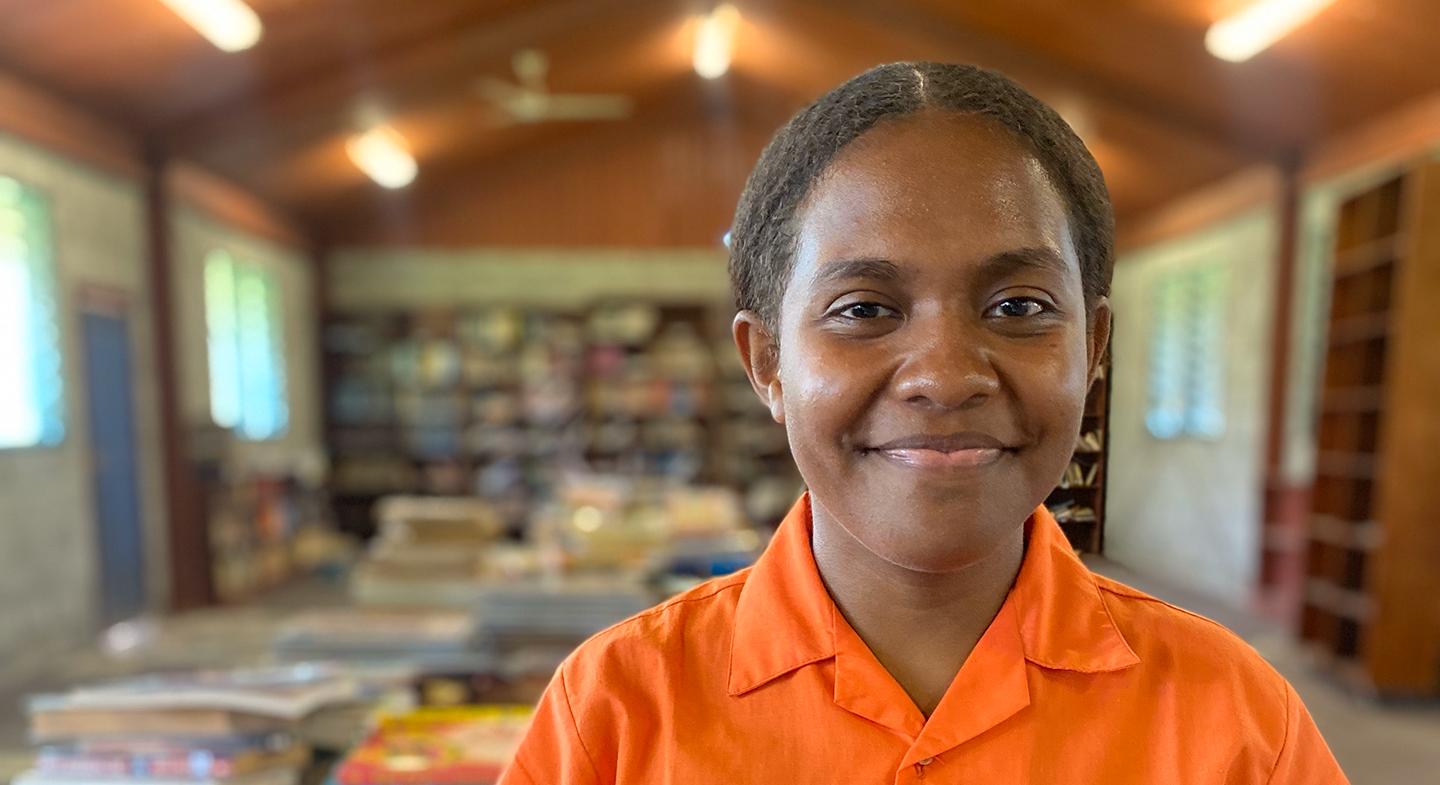
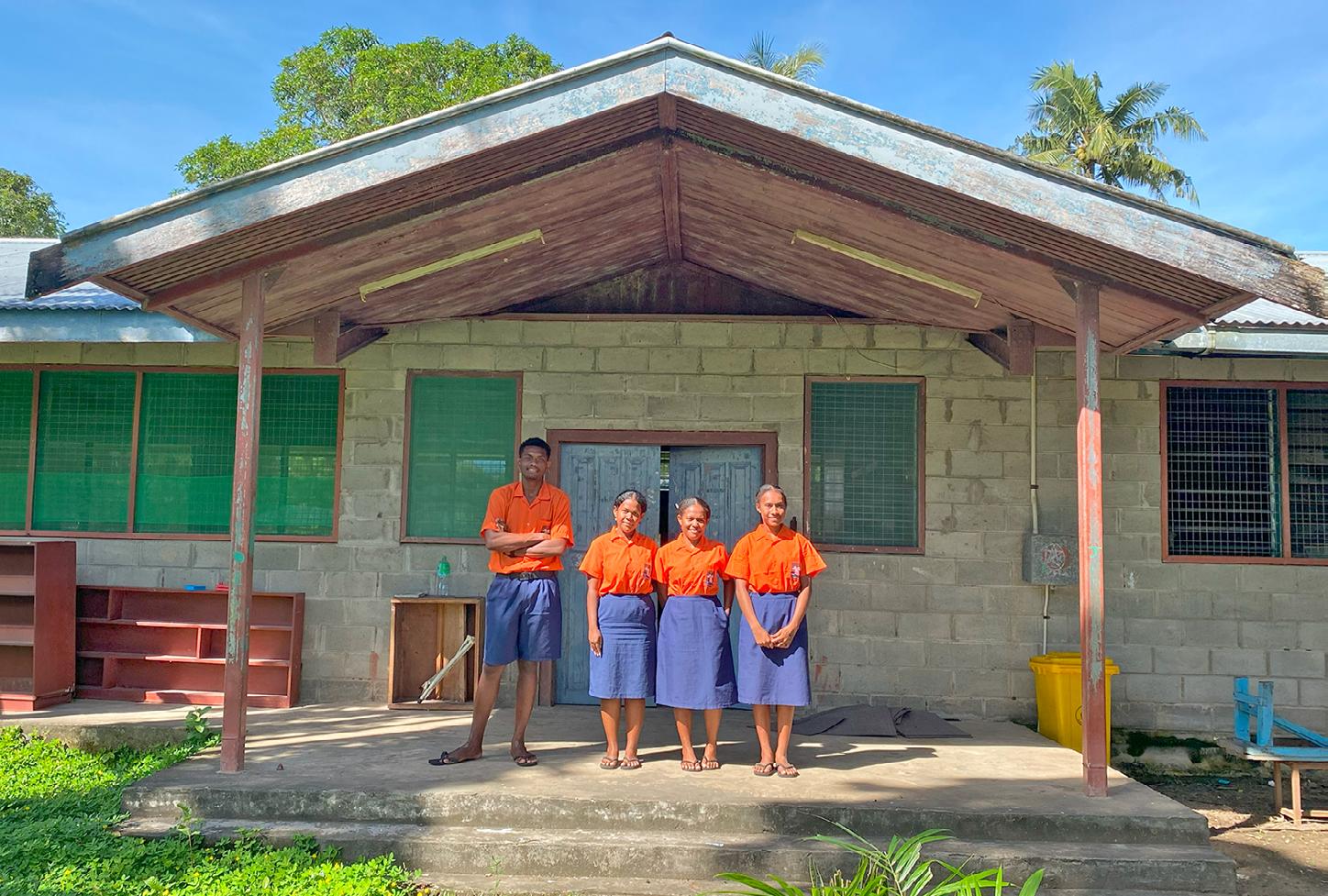
low, unfortunately, less than 30%.
“So, I think the support that is given to St Joseph’s is very important. The need is genuine, and we would like to see more students reading books. Developing those skills is very important for the overall development of our country.”
“A library in the Solomon Islands is very important as a developing country. There’s a lack of a lot of the resources needed in schools.”
Abraham points out that a library will improve teaching and learning: “The support that is given to the library will help teachers in doing the research that supports their teaching.”
AMS is conducting its Mid-Year Appeal until 30 June to support projects like a new library at St Joseph’s. A new library would allow students to access books, develop their literacy, and build a brighter future. Every donation above $2 is tax deductible and contributes to the futures of students like Olivette, Mary, and Karldo.
You can donate today to the Mid Year Appeal using the details on page 15.
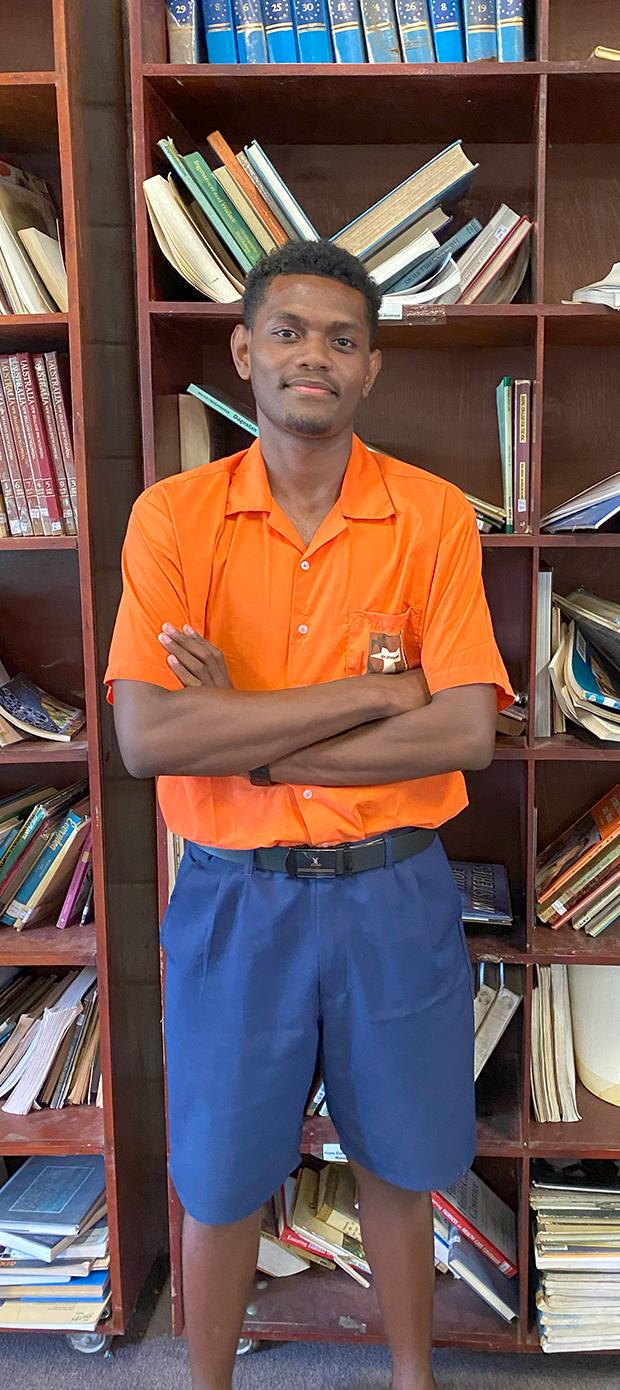
Pictured opposite: (top) Olivette believes a new library will help improve students literacy; (bottom) Mary sees education as the foundation for her future.
Pictured this page: (top) St Joseph’s students want to see their library re-opened so they can research and study on campus; (bottom) Karldo poses in front a bookshelf in the library that is currently closed.
In the Solomon Islands, 75% of the population is under 35 years of age. As you can imagine, we have quite a large, young population who are in need of jobs, who are in need of possibilities for their future. Education is probably one of the routes in which they can go to help them live a fulfilled life.
The way in which we deliver education, especially in secondary school, is exam-heavy. In order to secure your place in school, you have to be able to pass all your exams and achieve the entrance score that is applied by all secondary schools. If you don’t get any of the entrance scores then you have to drop out of school. And unfortunately, we have only two vocational schools running in Solomon Islands. Otherwise there are no avenues for students or for young people, which is a major problem at the moment, last year alone, we had 78,000 students drop out of secondary school. A lot of them did not reach the pass marks.
Many of the schools were built during colonization and they haven’t been maintained since. A lot of these schools haven’t had that general maintenance needed. The population is growing, but these schools haven’t changed, so they’re quite overrun with student population.
I know for example at St Joseph’s Tenaru there can be up to 60 to 70 students in one class with one teacher, which is double the ratio that’s acceptable in Australia. Where a dorm could fit 20 students at one point is now housing 60 or 70.



Former Parramatta Marist High School Student, Zain Chaudry, presents to Marist School staff on his experiences of lobbying to the UN as a high school student.
In 2020, Zain Chaudry was a 16-year-old high school student at Parramatta Marist High School. It was here that he heard a presentation from an Old Boy of the College who had been to the United Nations to lobby on key issues as part of the Universal Periodic Review (UPR). Students were invited to work on a new presentation to the UN as Australia’s review was undertaken in 2021.
Zain wasn’t sure what that entailed or what he was getting himself into, but he saw an opportunity to make a difference and went for it.
“It was...Oh gosh...Nerve-racking! Absolutely terrifying!” says Zain about what it felt like speaking in front of UN officials.
The Universal Periodic Review (UPR) is a unique mechanism of

the Human Rights Council that calls for each UN Member State to undergo a peer review of its human rights records every 4.5 years. The UPR provides each State the opportunity to report on its actions to improve the human rights situations in their countries and to receive recommendations informed by multi-stakeholder input and presession reports – from UN Member States for continuous improvement.
Zain and five of his peers from Parramatta Marist were invited by the international Marist solidarity agency, FMSI, to develop recommendations and lobby for their adoption within the UPR process. The themes they chose were climate change, asylum seekers and refugees, and domestic violence.
Zain shared his experience with the
AMS Regional Working Group on 13 June, which consisted of Heads of Mission, RECs, and APREs from Australian Marist schools. The meeting’s theme was advocacy, and Zain’s story was used as the impetus for a discussion about enabling student voice.
Zain urged the staff assembled not to “underestimate the voice of young people.”
“It’s integral to our society that we give young people a voice, a stage, to advocate because it’s the policies, it’s the plans, it’s the procedures that they will grow up on, they will grow into...So when we grow up and are in those roles of representation and power, it’s not us changing the policies set before us; it’s us improving the policies that were set by us.”
Despite the challenges posed by inflation and the increasing cost of living, our donors’ unwavering commitment fuelled our partnerships with communities in the Asia-Pacific region to facilitate access to education for young people in need. Donor commitment was met with equally inspiring initiative from our project partners, evident in many projects across the region.
Our annual report celebrates the transformative power of our shared Marist mission. We invite you to explore the stories within, each a testament to the impact of your support in igniting change and improving the lives of countless young people.
AMS is grateful to be part of a dedicated community united by a shared mission to support children and young people in reaching their fullest potential. Thank you for joining us on this journey.
The full 2023 Annual Report now available at: www.australianmaristsolidarity.org/publications
ANNUAL REPORT HIGHLIGHTS:

54 total projects | 40 project partners | 18 countries | 8,823 project participants
$2,350,110 sent to programs
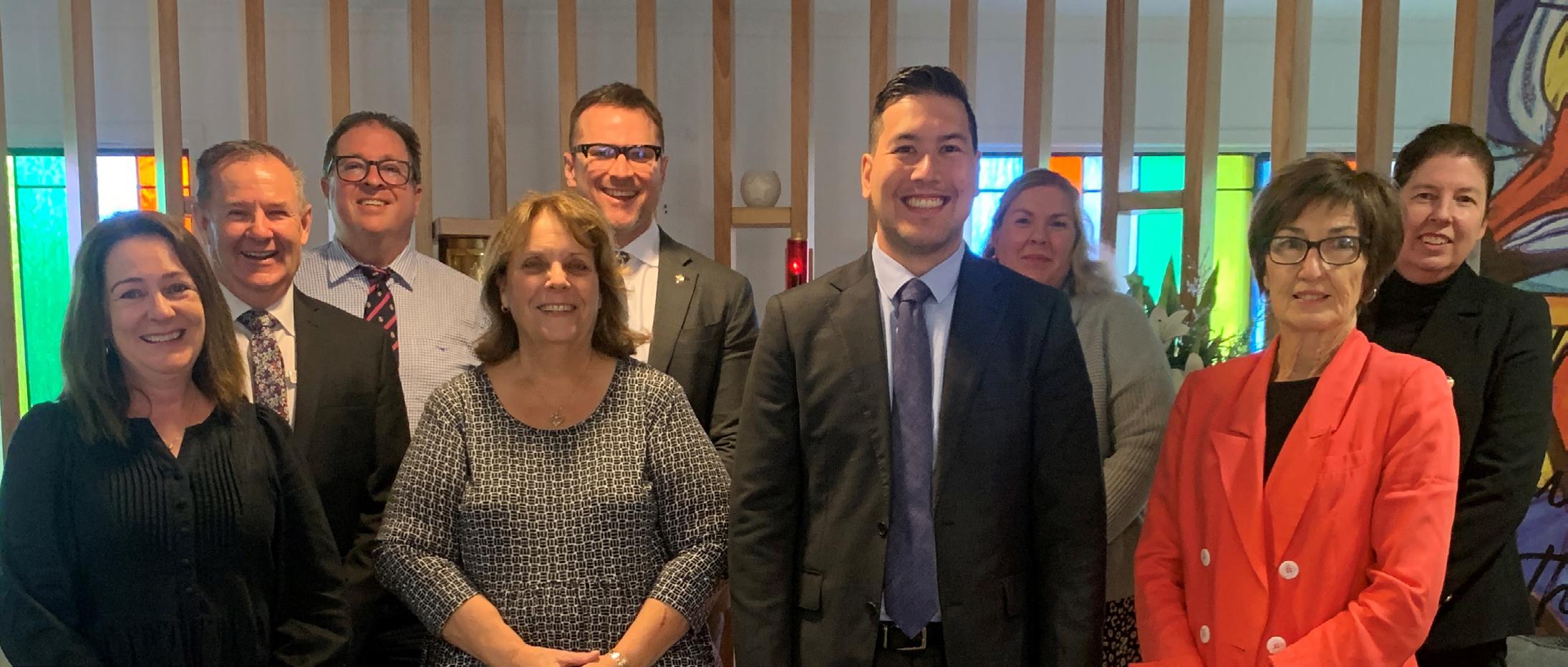
AMS staff joined with colleagues at the Marist Centre Brisbane in celebrations of the Feast Day of Marcellin Champagnat (6th June). Known colloquially as Champagnat Day, this special religious celebration of St. Marcellin encourages Marists globally to reflect on the life and legacy of the Founder of the Marist Brothers. AMS continues Marcellin’s work of providing access to education to vulnerable young people in our work alongside our project partners through the Asia Pacific. Today, Marist Brothers are located in 82 countries: North America, Central America, South America, Europe, Africa, Asia, Australia, the Middle East, and Oceania. There are over 600,000 young people in Marist schools around the world each year. The Marist Brothers are joined worldwide by more than 70,000 lay men and women who share in their mission.


The Chetana Boys Hostel is a mission of the Marist Brothers in India. The Hostel belongs to the Diocese of Asansol and has been administered by the Brothers since 2010.
The Hostel is home to 65 boys from the Santhal tribe of West Bengal. The Santhal tribe belong to the lowest caste in India and thus faces poverty, discrimination and inequity. Children often must work alongside family members cultivating rice rather than attending school.
Santhal boys who live at the Hostel have the opportunity to attend local high schools while being provided with a home, meals, and the resources required to complete their studies. The Brothers and Hostel staff provide tutoring and other extracurricular


personal development activities, such as sports days.
Br Jiji Dhassad, Director of the Hostel, recently reported that eight students had completed Government exams and received passing grades. A pass means these students will be able to continue their secondary studies.
“We are so happy and grateful to all the teachers and AMS staff and benefactors and students,” said Br Jiji. “Because of your big contributions to our students from our Hostel, 8 boys are able to go for higher education to the college. Thanks to all of you. Give our Gratitude to all the AMS staff, beneficiaries, parents and students.”
St Joseph’s College in Mabiri recently completed the latest phase of a building project. This phase included maintaining the STEM block, installing hydration stations, upgrading computer laboratories, and completing three houses to accommodate new staff members. The opening of these houses is a key step towards the school facilitating upper secondary learning (Years 11 and 12).
The Marist Brothers have been present in Mabiri since 1998 after the original St Joseph’s school was destroyed during the Bougainville Crisis (1989-2001). The school was established to educate young men, ex-combatants in the Crisis, who had not been able to attend school for 12 years. Today, the school offers coeducational opportunities to over 600 children and young people
in kindergarten through to Year 11. St Joseph’s additionally offers a two-year vocational program.
Bougainville is on the path towards independence from Papua New Guinea, and expanding the education sector is critical to empowering today’s youth, who will become tomorrow’s leaders. The Bougainville Division of Education has identified St Joseph’s College as the site for a critical expansion into upper secondary school due to its reputation as a topperforming, well-managed school.
The significance of adding upper secondary to St Joseph’s lies in the statistic that less than 25% of the school’s grade 10 graduates can progress to upper secondary school. Only four upper secondary schools in Bougainville offer around 500 positions for an estimated age cohort of several thousand.
The impact of adding facilities to accept upper secondary students extends beyond those who will study in Years 11 and 12 at the school. This is evident in Peter’s story (name changed for privacy). Peter is a vocational student who arrived in Mabiri intending
to earn a certificate in building construction. At St Joseph’s, he got hands-on experience, contributing to constructing the staff above houses. He’ll return home with this valuable experience and a National Certificate in Building Construction. He would unlikely have had this same opportunity at another school, and he says that he “feels fortunate” to have gained this experience at St Joseph’s.
The first phase of the building project, completed in December 2022, involved the construction of classrooms and boarding facilities to house Year 11 and 12 students. With the completion of this latest phase, St Joseph’s will see the first intake of Year 11 students in 2025.
St Martin’s Rural Training Centre in Tenaru provides vocational pathways for young people. Two-year courses are offered in carpentry, life skills, mechanics and agriculture.
The third phase of a building project is currently underway at St Martin’s, involving the construction of new
it is common practice for teachers to be offered accommodation as part of their salary package, with teachers paying for utilities. At present, the teacher’s quarters are over capacity and have received damage due to flooding.
In accordance with AMS’ mandate to support projects in Asia and the Pacific, we have decided to discontinue funding projects outside of this region. We have closed our relationship with two projects: Bosele House (Republic of South Africa) and Buhangija Secondary School (Tanzania).
AMS has supported Bosele House in the Kalahari Desert for 13 years. Since 2014, Bosele House has accommodated 32 orphaned and impoverished children who attend a nearby school. At Bosele House, children receive safe accommodation and regular meals. They receive extra tuition in school subjects and are taught how to cook, clean, and look after themselves. They become regular school attendees, with many progressing into further education. AMS has provided the transfer of donations and



policy development and support.
AMS has supported Buhangija Secondary School since 2017 with minor maintenance, repairs, supplies, and scholarship assistance. Buhangija provides accessible education, with fees well below 50% of comparable schools, and offers scholarships to the most vulnerable. Prospective employers look upon the private education offered by Buhagija favourably so that students can access more dignified work post-school.
St Louis High School is a Maristadministered school located on Tarawa, the main island of Kiribati. It is a coeducational junior and senior high school with approximately 900 students.
The construction of a new, twostorey administration building has commenced. There are 66 staff members at St Louis, including 49 teaching staff, and no dedicated administration block exists. Staff are currently spread out across several converted classrooms. The new building will be located at the school entrance and will be twostorey to accommodate all staff and provide specialty rooms.
Construction of a new classroom block at Our Lady Queen of Martys Secondary School (OLQM) on Makira Island in the Solomons hasn’t been without complications, with delays occurring due to the availability of supplies. But soon, new classrooms will be opened for students to use and enjoy, and as Form 2 student Tony says, “That could be the nicest thing that has happened to me so far!”
Tony explains that when he commenced at OLQM, his classes were held in the school dining hall. “It was a challenge,” he describes, “as the Hall had to be swept after every mealtime in preparation for classes. We had to leave our books on top of the desks so that the rats wouldn’t feed on them!”
Fellow student Bev concurs, saying, “I’ll enjoy studying more in these new classrooms because there is a lot of space and a much cleaner and safer environment.” At home in her village of Tetere, Bev and four siblings would have to walk for hours to attend the closest secondary school. Bev explains, “I love my school because I am comfortable and feel safe in the environment.”
Staff will also enjoy the new facilities. “We teachers would not

have a proper table for ourselves, and we would have to share the students’ desks to put our books on because there wasn’t any space for an extra table,” says teacher Mr Solomon. Mr Solomon has taught at OLQM for six years and has seen staff and students persevere in less-than-ideal facilities. He claims the new building is “one of the best classrooms on the island.”
“I express my gratitude to AMS and all those who have helped,” says Tony. “Education protects children in Makira from risks such as drugs and homebrew. These classrooms will allow even more students to enter OLQM in the coming years.”
Partners and friends at Operation Rainbow facilitated an enlightening awareness program on natural farming, healthy diets, and waste recycling. The event’s theme was ‘Nurturing Growth in Small Scale Farming’. Forty-five families attended, eager to learn about cultivating vegetables and smallscale farming to support their livelihood. The initiative is a significant step towards promoting sustainable living and fostering a sense of community among the beneficiaries of the Rainbow project.





At the time of publication, Taylor Lemmon (AMS International Programs Officer) was visiting project partners in Asia. The above photos come from her visit to the Marist Asia Foundation (MAF) in Thailand, a Marist Fathers program providing education to Burmese Migrants.
Pictured, top to bottom:
Students line up for the singing of the Thai and Burmese anthems and the raising of the Thai flag | Students studying hard in English class | Taylor Lemmon pictured with Sr Josephine and Sr Christina, Sisters of Our Lady of the Missions, who run the Anti Human Trafficking Project in Myanmar.
The following report comes from AMS International Programs Officer Taylor Lemmon after meeting with Sisters of Our Lady of the Missions in Thailand. The Sisters coordinate the Anti Human Trafficking Project in Myanmar, dedicated to providing skills training to vulnerable young women and migrants.
The conditions the Sisters work under are extremely challenging. With constant pressure from the Junta it is harder and harder for them to continue delivering their projects. They have had to close their kindergarten project. Just recently, the Sister had to close their health project: as international organisations are no longer allowed to work in the region, their health project funder had to leave Kawthaung and with their departure, cancelled funding.
Imports to the region have been cut off for about 2-3 weeks now and daily requirements such as food and water are becoming more scarce and what is available becomes more expensive by the day.
The Sisters are extremely brave providing an opportunity to the young women in the region to gain skills that will support them to find work in a debilitated economy and with work be able to support their families. The sisters also provide pastoral support to many community members, who have no were else to turn. They risk their lives to support their community.

This year, schools are fundraising under the theme of Light Up the World, Inspired by LaValla Cambodia. We’re thankful to those schools, such as Marist College Ashgrove and St Augustine’s College Cairns, who have already kicked off strong fundraising campaigns. Once again, schools that donate towards the Schools Campaign will go into the running to win the AMS Highest Fundraising School Award and the Marist Spirit Award.
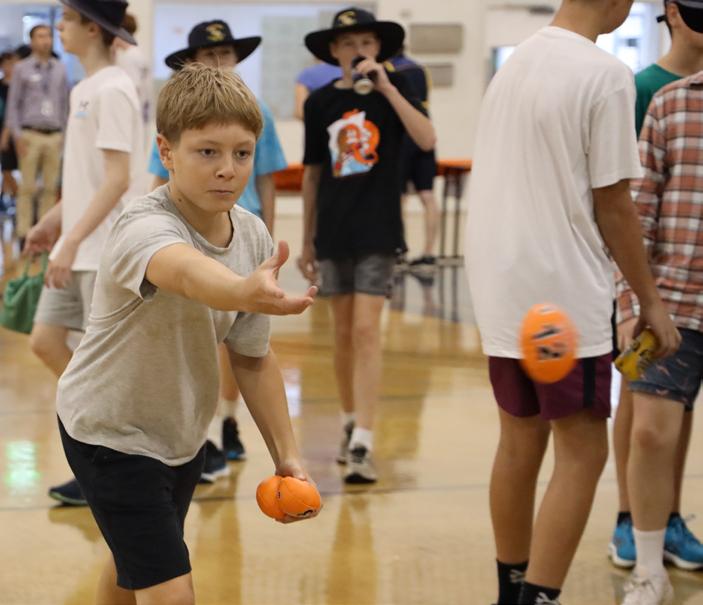
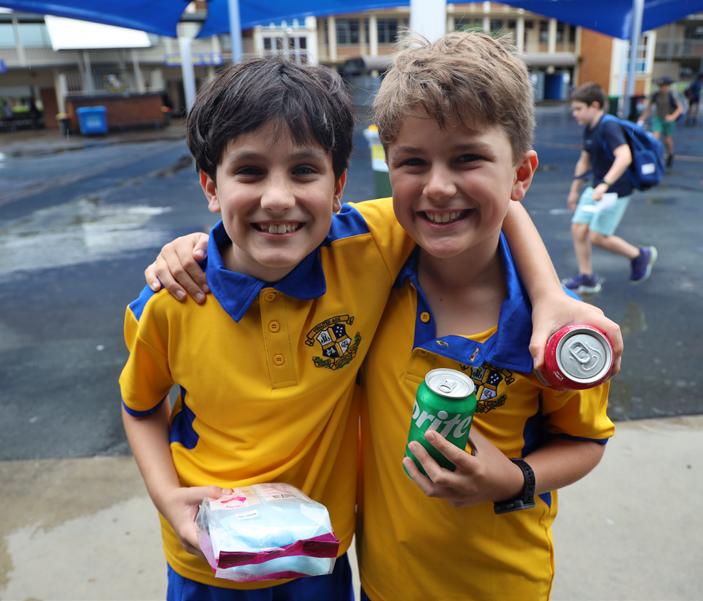


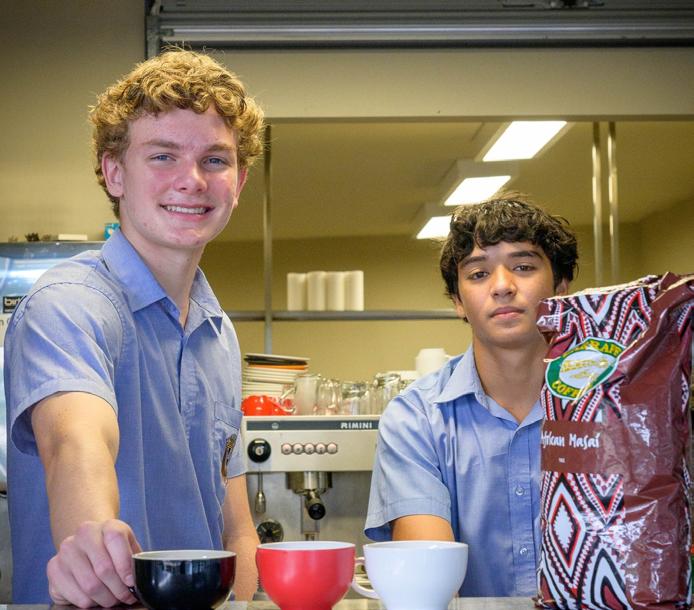
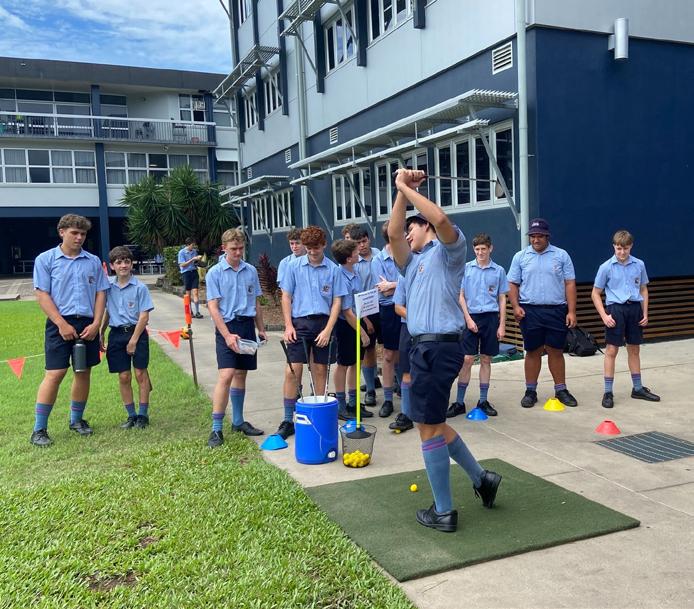
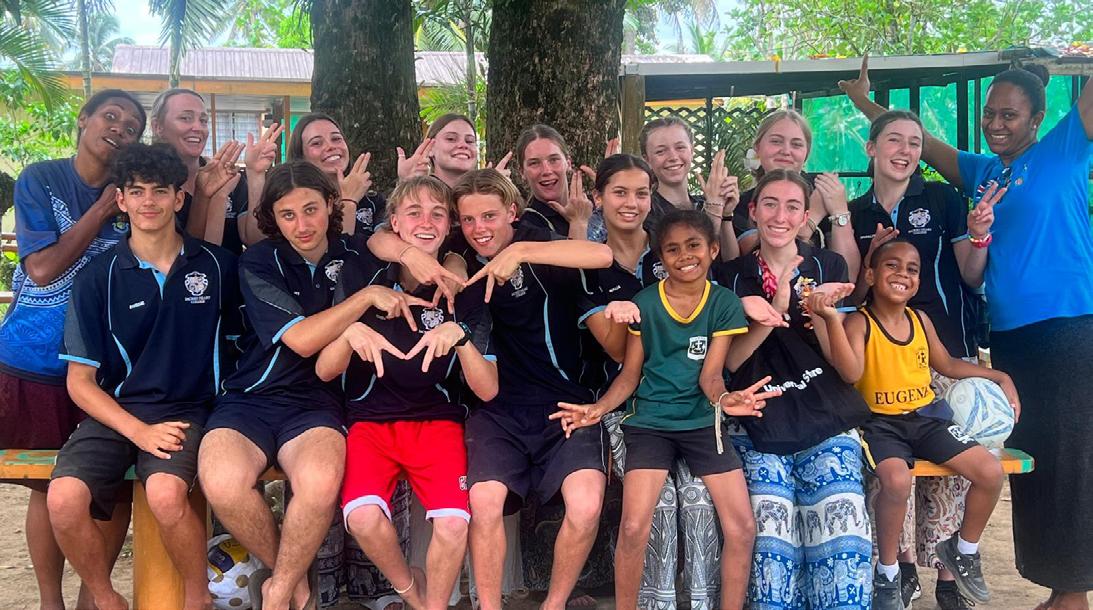
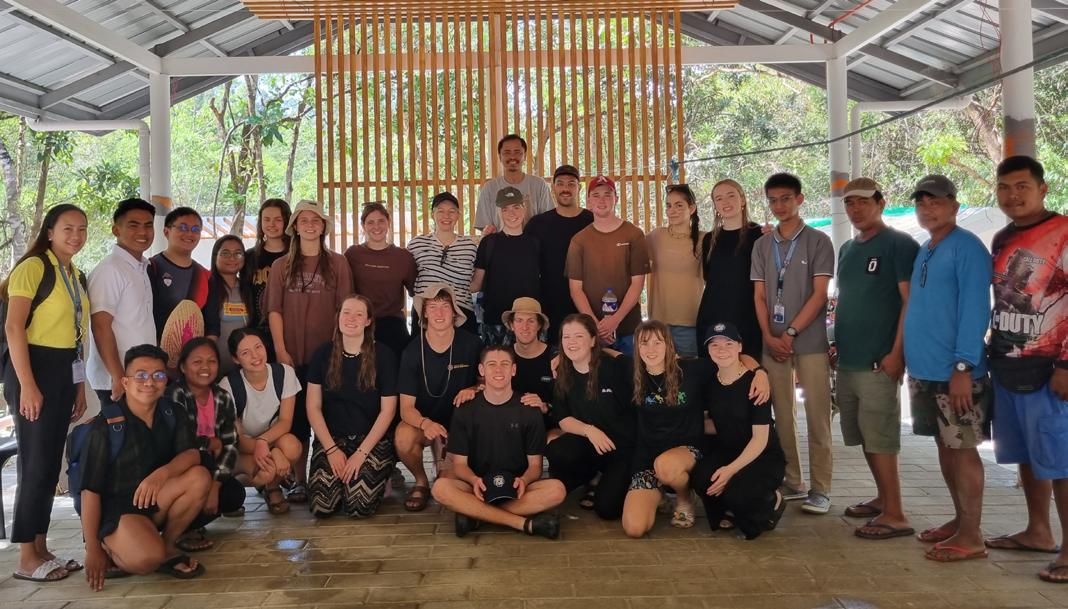


Prep: 1h 30min
Cooking time: 15mins
Servings: 6
Ingredients:
• 1/2 cup rice flour
• 1 tbsp cornflour
• 1/2 tsp ground turmeric
• 1/4 tsp sea salt
• 2 pinches ground white pepper
• 2/3 cup coconut milk
• 1/2 cup iced water
• 1 1/2 tbsp peanut oil
• 200g pork mince
• 2 tbsp fish sauce
• 2 green onions, thinly sliced diagonally
• 500g medium cooked prawns, peeled, deveined, chopped
• 1/2 cup snow pea sprouts, trimmed
• 1/4 cup fresh mint leaves
• Sweet chilli sauce to serve
Method
Step 1
Combine flours, turmeric, salt and a pinch of pepper in a bowl. Add coconut milk and iced water. Stir until smooth. Cover. Refrigerate for 1 hour to rest.
Step 2
Heat 2 teaspoons oil in a 22cm (base) non-stick frying pan over medium-high heat. Add mince. Cook, stirring with a wooden spoon to break up mince, for 4 minutes or until browned. Add fish sauce and remaining pinch of pepper. Cook for 2 minutes or until fish sauce has almost evaporated. Remove from heat. Add half the onion. Stir to
combine. Wipe the pan clean.
Step 3
Add remaining onion to batter. Brush pan with half the remaining oil. Heat over medium-high heat. Add half the batter to pan. Tilt pan, swirling batter to cover base and slightly up the side. Cook for 4 minutes or until base is golden. Place half the mince mixture and half the prawn on half the pancake. Top with half the sprouts and mint. Fold over to enclose. Transfer to a plate. Repeat with remaining ingredients.
4. Cut each pancake into thirds. Serve with sweet chilli sauce.

AMS supporters will have received a message from Norman Chan, Acting Board Chair, informing that the Board has accepted Bec Bromhead’s resignation. Norman said:
“Under Bec’s leadership, AMS has achieved significant milestones in advancing education and development. In 2023, AMS managed 53 projects across 18 countries in Asia and the Star of the Sea Province, collaborating with forty community partners to implement impactful initiatives. Bec’s commitment to building strong relationships with our network of schools and educational institutions has been a cornerstone of our success. We would like to particularly commend Bec’s exceptional leadership during the challenging COVID years. We extend our heartfelt gratitude to Bec for her outstanding contributions and wish her all the best in her future endeavours.”
Bec will conclude as CEO in September.
AMS has welcomed Cara Hughes to the team in the role of Business Manager. Cara comes to the team with extensive experience, most recently working for the Brisbane Museum at Town Hall.
A new AMS website was launched in May. The new site retains the previous URL but presents a simpler interface, ensuring all website visitors can easily find information about AMS and our project partners.
The AMS Board has also welcomed new members Colby List, Jonathon Campton, Richard Quinn and Sr Theresa Waine.
AMS fulfilled its reporting obligations to the Australian Council for International Development (ACFID) by submitting and obtaining full authorisation at the end of May, demonstrating our unwavering commitment to transparency and accountability.
AMS has maintained its status as a Fundraising Institute of Australia (FIA) member.
We look forward to the AMS Annual General Meeting on 27 June and to our Annual Board and Committees Day on 6 September.


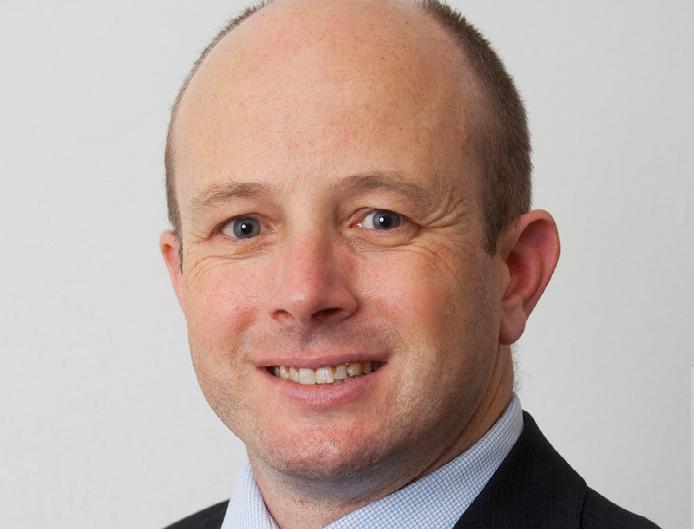
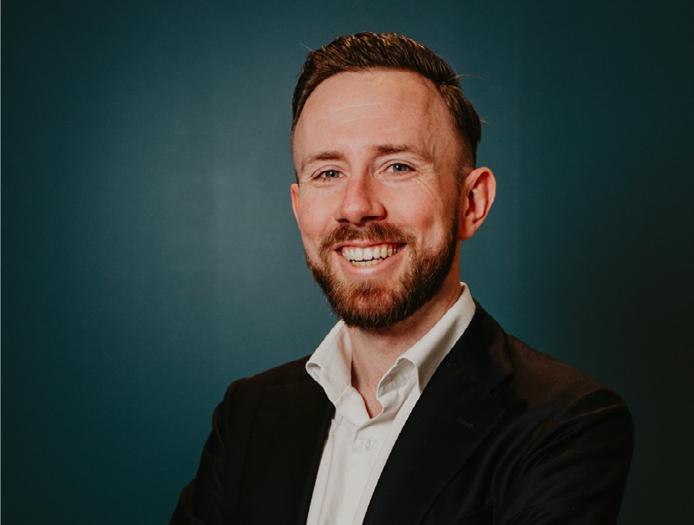
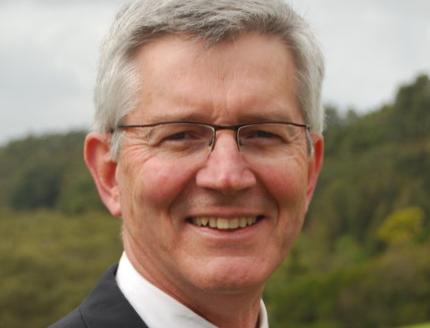
Name (firstname/surname):
Address:
Suburb: State: Postcode: Email:
Give once: Give Monthly*: *Monthly giving helps AMS and our program partners plan for the future.
I wish to donate: $110 $230 $500 Other:
Credit Card Number:
Expiry Date: / CCV:
Name on Card:
*All donations over $2 are tax deductible. Post: Send this coupon using the reply paid envelop included (no stamp required).
A gift in your will can leave a legacy to transform the education of future generations of young children. Once you have remembered your loved ones, would you please consider leaving a gift in your will?
Tick this box if you would like information about leaving a gift in your will to AMS.
SHARE WITH THE STUDENTS OF ST JOSEPH’S TENARU: MY FAVOURITE BOOK IS











